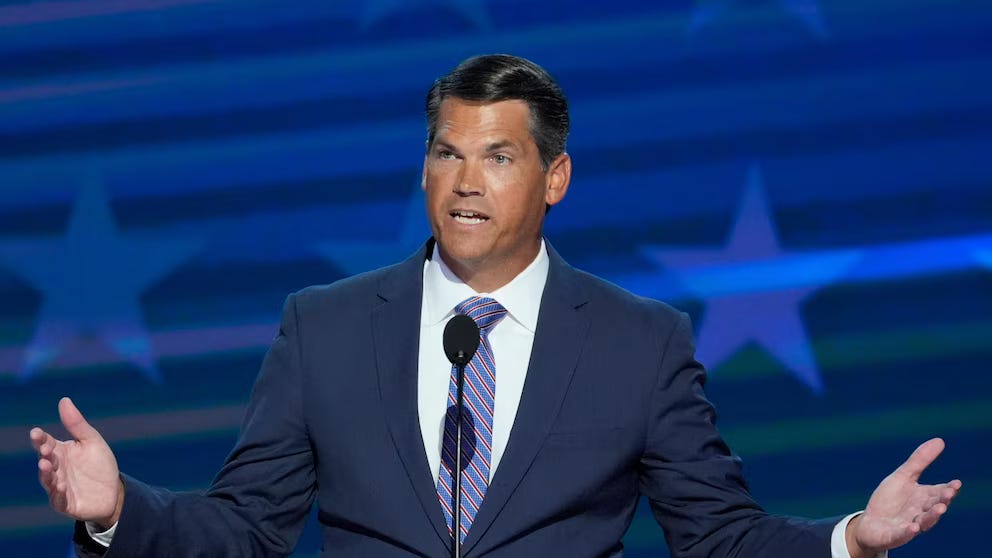Geoff Duncan enters Georgia Governor's race as a Democrat
This completes Duncan's transition from red to blue.
What happened:
Geoff Duncan, former Georgia lieutenant governor and one-time Republican, has officially launched his campaign for governor in 2026 — as a Democrat. He switched parties earlier this year after years of vocal opposition to Donald Trump, and the Georgia GOP expelled him in 2025.
Where He Stands: Strengths & Challenges
Strengths:
Electability in a swing environment: Georgia at the state level leans Republican but has shown competitiveness, especially in federal races. Duncan is pitching himself as someone who can pull not just Democrats, but independents and Republicans disillusioned with Trumpism.
Name recognition & past statewide experience: He’s already been lieutenant governor (2019-2023) and served in the Georgia House. That gives him credibility and visibility.
Anti-Trump positioning: His departure from the GOP and his criticism of Trump are central to his appeal. He argues that Georgia Republicans “threw him out” for standing up to Trump.
Challenges:
Pitching to Democratic primary voters: Several Democrats are skeptical of his switch and past conservative or Republican-aligned positions (for example, his previous stance on abortion bans). That could hurt him in a primary where loyalty and ideological purity often matter.
Crowded field: He joins an already competitive Democratic primary with figures like Keisha Lance Bottoms, Jason Esteves, and Michael Thurmond. Many of them have deep ties in the Democratic base.
Perception issues & trust: Some Democrats believe Duncan’s past stances (on abortion, for example) make him a less reliable choice. He’ll need to convince not just that he has changed, but that his change is sincere and enduring.
What Key Players Are Saying
From Geoff Duncan:
“I’ve never wavered in taking on Trump. So Georgia Republicans threw me out of their party. I was leaving anyway. Now I’m running for governor as a proud Democrat.”
On being able to win: “I’m the only one who can bring Democrats, independents and disgusted Republicans to vote for us in November ’26.”
He also says the policy shifts (medicaid expansion, gun safety, abortion rights) are part of his evolving views; he told the AJC “I got it wrong” on some prior positions.
From Democrats:
Keisha Lance Bottoms released a statement contrasting her record with what she frames as Duncan’s past conservative positions: “Georgians want a governor who has fought to expand Medicaid instead of eliminated it, who protects reproductive rights rather than stands ’100 percent’ against them …”
Jason Esteves’ campaign has pointed to Duncan’s previous history on abortion, saying “Georgia women won’t forget.”
From Republicans / Trump side:
Donald Trump tweeted about Duncan’s party switch, calling him “a total loser … Good riddance Geoff. You don’t even have a chance!!!”
The Georgia Republican Party chairman, Josh McKoon, criticized him: “For someone who once proclaimed himself to be about principle over politics, it turns out the only principle that guides Geoff Duncan is his insatiable appetite for attention.”
Outlook: What to Watch
Duncan’s success in the Democratic primary will depend heavily on how well he can neutralize concerns about his past positions and show credibility on core Democratic issues (abortion rights, Medicaid expansion, etc.).
Fundraising will be key: how much money he can raise vs. his primary rivals might indicate whether donors believe he can win in November.
Voter turnout and sentiment among independents and "disgusted Republicans" will matter — his whole pitch revolves around pulling from those groups. If they stay home or stick with GOP loyalty, that weakens him.
The general election matchup (who the Republican nominee is) will also be determinative; facing a Trump-aligned opponent could help him, while a more moderate Republican might make his case tougher.
Bottom Line
Geoff Duncan’s entry into the race as a Democrat is disruptive. He provides a new axis: a candidate who can potentially bridge party lines, given his anti-Trump record and centrist background. But he also faces uphill battles, especially among Democratic primary voters skeptical of his transformation. If he can convince enough of them (and independents disillusioned with the GOP) that he’s both principled and electable, he could make a credible bid. Otherwise, he risks being seen as too much of a fence-sitter by both sides.



What does he think of this LG-Hyundai factory being stopped by Trump-MAGA.